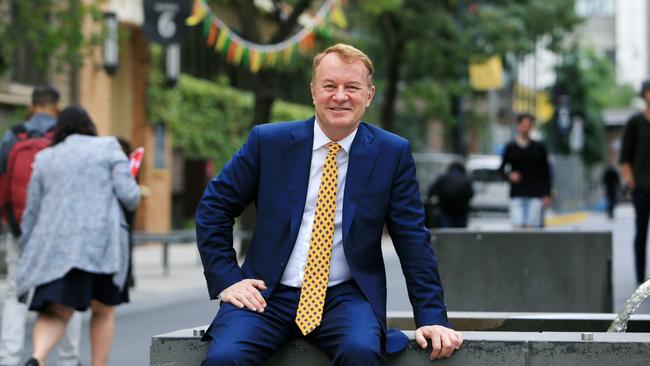Fortress Australia slams shut the door to learning for another year

For all of last year, they waited patiently offshore. They paid significant tuition fees to continue their studies online. They reassured one another that they would be returning to Australia in 2021.
But barring a politically brave premier breaking ranks and giving them some priority, it now appears that a semester one start date is out of the question.
For many nations the thought of giving up on a $40bn a year industry would be unthinkable politically. Unfortunately, for the beleaguered international education sector it is a reminder that the longstanding political chestnut of “Fortress Australia” is still very much to the fore.
A fortnight before the recent meeting of national cabinet, several peak bodies in the education sector combined to send a letter to the Prime Minister, premiers and chief ministers.
The letter contained two simple requests: provide an indicative date for the return of international students and send students caught offshore some positive messaging that we are at least thinking of them.
For the estimated 240,000 Australians who work in the international education sector there is, of course, a vested interest in ensuring that we maximise the numbers of full-fee-paying overseas students.
However, many who work in the sector have far more altruistic motives. Converted long ago to the benefits of global citizenship and the internationalisation of higher education, they despair at the plight of their dispossessed students. In their despair they shine a light on the fact this pandemic provides us all with a stark reminder that there are two Australias — an inward-facing country versus a dynamic pluralistic society.
The axiom of “Fortress America” is well know to students around the globe. It references the fact that at various times throughout its history the US has withdrawn into itself and chosen not to engage fully with the global community. Even today some historians maintain that if it had not been for Pearl Harbor the US might never have entered World War II.
In a similar vein, as an island continent Australia occasionally has chosen to pull up its drawbridge and not to engage. To our everlasting shame this was particularly evident during the days of the White Australia policy and the notion of the “Yellow Peril”.
In the modern era, it is particularly unfortunate that a key side effect of the fight against COVID-19 has been a return to radical nationalism and, in some quarters, xenophobia. This clearly is not confined to Australia.
However, as a nation that has prided itself on being a welcoming, culturally diverse and open society, it is at odds with the self-image we take such pride in and vigorously promote.
It is also at odds with our free-trade market rhetoric.
As John Howard proved with his Tampa election victory — based on the simple message of “we decide who comes to this country” — the politics of fervent nationalism works well in a crisis.
So while Canada, Britain and now even New Zealand have opened their borders to already enrolled returning international students, Australia appears to have shut the door in their face for another year.
How do you explain to a fourth-year dental student in Canada or a third-year nursing student in India that they cannot come back to Australia to complete their education?
How do we explain to these young people who have invested so much time and money that we choose tennis players, Hollywood film stars and imported seasonal fruit pickers over their right to complete their promised qualification?
Former foreign minister Julie Bishop would often express her delight that at any given time half the cabinet ministers in Indonesia and Malaysia had completed their education in Australia. She regarded the soft-power benefits that accrued to Australia from educating the future leaders of our neighbouring countries in science, politics and business as a special attribute.
There will be a time of reckoning after this pandemic when we look back as a nation at what we have gained and lost. Let us hope that the reputational damage that we have inflicted on ourselves by crushing the hopes and dreams of thousands of overseas young students will be worth the anticipated health and political dividends.
Phil Honeywood is chief executive of the International Education Association of Australia.



Last week, by its refusal to countenance overseas student return plans, national cabinet broke the hearts and hopes of thousands young people.